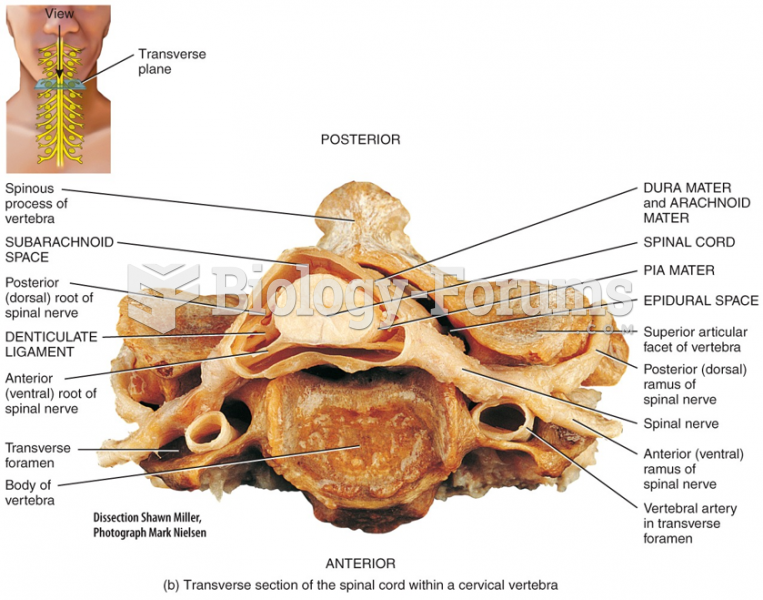|
|
|
Human neurons are so small that they require a microscope in order to be seen. However, some neurons can be up to 3 feet long, such as those that extend from the spinal cord to the toes.
Patients who have undergone chemotherapy for the treatment of cancer often complain of a lack of mental focus; memory loss; and a general diminution in abilities such as multitasking, attention span, and general mental agility.
Calcitonin is a naturally occurring hormone. In women who are at least 5 years beyond menopause, it slows bone loss and increases spinal bone density.
Although the Roman numeral for the number 4 has always been taught to have been "IV," according to historians, the ancient Romans probably used "IIII" most of the time. This is partially backed up by the fact that early grandfather clocks displayed IIII for the number 4 instead of IV. Early clockmakers apparently thought that the IIII balanced out the VIII (used for the number 8) on the clock face and that it just looked better.
There are 20 feet of blood vessels in each square inch of human skin.
 Cade and colleagues discovered a way to improve athletic performance and prevent salt and water imba
Cade and colleagues discovered a way to improve athletic performance and prevent salt and water imba
 Care must be taken in handling bodily fluids to prevent the transfer of infectious agents through co
Care must be taken in handling bodily fluids to prevent the transfer of infectious agents through co





